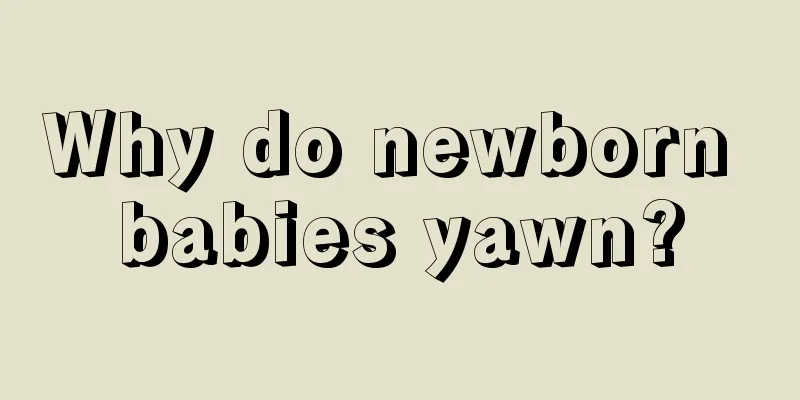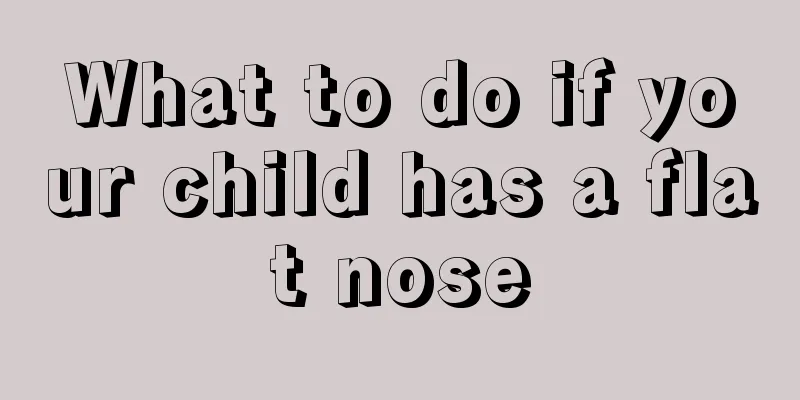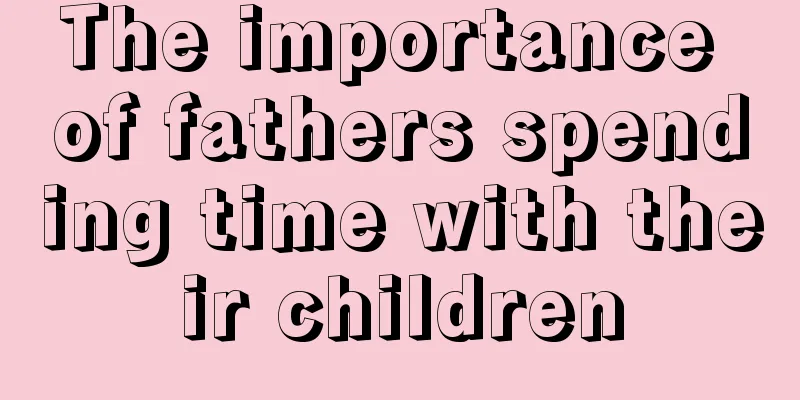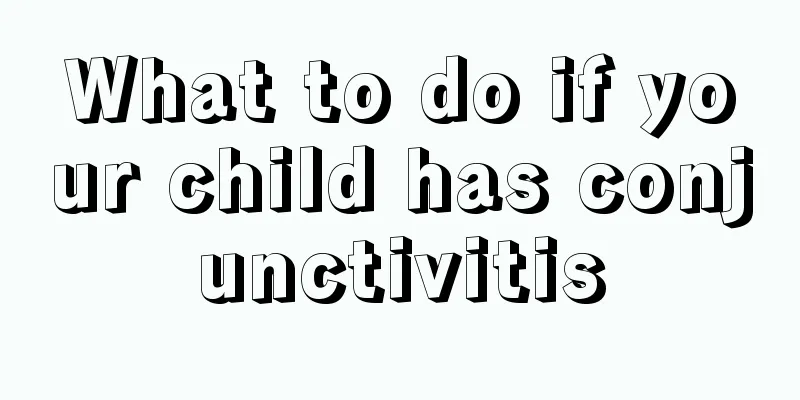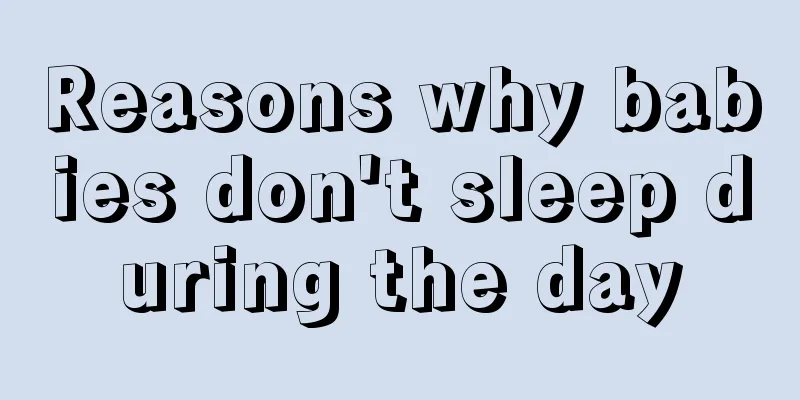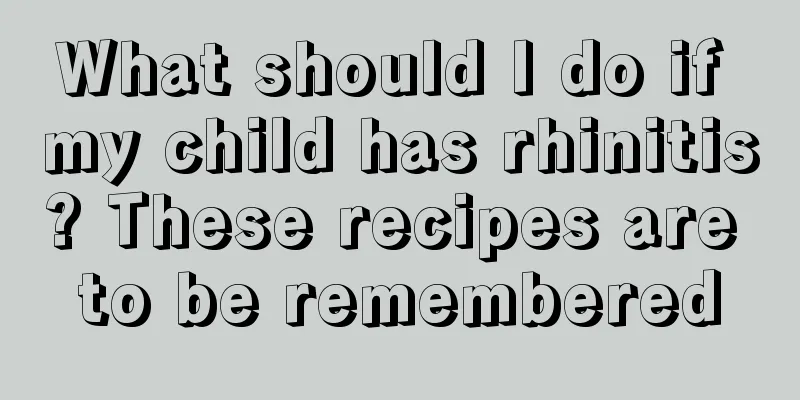Why do three-month-old babies sweat on their hands and feet?

|
Why do three-month-old babies have sweaty hands and feet? Some babies who are just three months old always have sweaty hands and feet that feel damp and cool to the touch. This makes many parents very worried, and they want to find out the cause of sweating hands and feet as soon as possible. So, why do three-month-old babies have sweaty hands and feet? Let's take a look at what the following article explains to you. Why do three-month-old babies sweat on their hands and feet? Generally speaking, babies sweat more than adults. Sweat is secreted by the sweat glands in the skin, which are one of the important structures of the human skin for regulating body temperature. Children have active metabolism and a lot of activity, especially infants and young children, whose skin contains more water and has more microvessels on the surface of the skin, so more water evaporates from the skin. Besides, children have poor self-regulation ability for cold and heat, and they like to sweat even at night, which is normal. My baby sweats a lot. Is it normal or abnormal? Excessive secretion of a baby's sweat glands is called hyperhidrosis. There are two main reasons for baby's excessive sweating: physiological excessive sweating and pathological excessive sweating. Normal reasons for babies' excessive sweating are mostly normal, which is medically called physiological hyperhidrosis. For example, the hot weather in summer causes children to sweat excessively; infants and young children sweat on their heads and necks when they just fall asleep, but the sweat decreases after they fall asleep; babies sweat a lot after playing, running and jumping, but are generally in good condition; in winter, babies wear too many clothes, the quilts are too thick at night, and the indoor air-conditioning temperature is too high, causing babies to overheat and sweat a lot. Some babies sweat only on the head and forehead, commonly known as "steamer head". This is also physiological sweating and parents do not need to worry. Abnormal causes of pathological hyperhidrosis in children: Babies sweat too much due to certain diseases, which manifests as sweating a lot when they are quiet or after falling asleep at night. The sweat can wet the pillow and clothes, which is called "pathological sweating." Such as active rickets in infants and young children, active tuberculosis in children, hypoglycemia in children, excessive dose of antipyretics and mental factors, such as excessive excitement and fear. Some babies have endocrine diseases (such as hyperthyroidism, etc.), which can also cause pathological sweating. In addition to excessive sweating, each disease also has many other disease manifestations. Parents need to take their baby to the hospital for further examinations. This is the expert’s answer to the question of why three-month-old babies sweat their hands and feet. I believe that now everyone should have some understanding of the reasons why three-month-old babies sweat their hands and feet. I hope this can help more parents. Here I would like to remind you that if the child has pathological hyperhidrosis, you should take the child to a regular professional hospital for further examination and treatment in time. |
<<: What to do if your baby has eye inflammation
>>: Is it serious if the inside of a newborn's lips turn purple?
Recommend
What to do if baby has BCG abscesses
Some babies need to be injected with BCG vaccine ...
What to do if children have hemorrhoids
Although hemorrhoids are more common among adults...
What should I do if my 11-year-old child is constipated?
Since children generally have weaker resistance a...
What to do if your child's ears itch
When the sensory nerve endings in the skin of the...
What to do if your child coughs and has phlegm during the day
When a child becomes sick, parents are very distr...
Why do white spots appear on baby’s face?
As we all know, vitiligo is a very scary disease....
Where are the massage points for children to grow taller?
Everyone is an independent individual, so there a...
What medicine should I take for my baby's stomach ache?
In daily life, many babies often have stomach pai...
What is the baby lacking in oral ulcers
It is quite common for infants and young children...
How to prevent gum inflammation in babies
Every child will grow deciduous teeth a few month...
What should I do if my nine-month-old baby has a blocked nose?
When babies reach nine months old, they are prone...
Causes of tics in children
Infant tics are also a relatively common disease ...
How to correct children's stuttering
Speaking of stuttering, I believe everyone is fam...
What to do if your baby has a runny nose due to a cold
It is normal for parents to have a baby catch a c...
What to do if a newborn baby has a stuffy nose?
If a child is feeling uncomfortable, parents may ...
